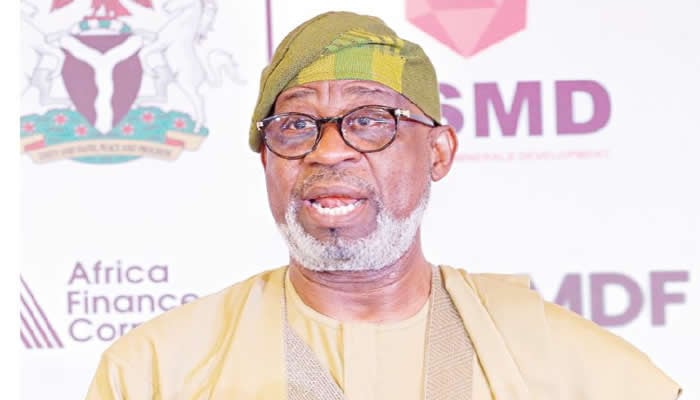United States President Donald Trump has designated Nigeria “Country of Particular Concern” over alleged genocide of Christians.
The new designation comes barely three months after Washington imposed tough visa restrictions on Nigerians, limiting most travel visas to single-entry, three-month validity.
Trump, who made the latest announcement on Friday via a post on his Truth Social platform, which was also shared on the official White House X handle, said Nigeria was facing an “existential threat” to Christianity.
“Thousands of Christians are being killed. Radical Islamists are responsible for this mass slaughter,” the US President wrote.
“I am hereby making Nigeria a ‘Country of Particular Concern.’ But that is the least of it. When Christians, or any such group, are slaughtered like is happening in Nigeria (3,100 versus 4,476 worldwide), something must be done!”
He directed Congressman Riley Moore and Chairman Tom Cole of the House Appropriations Committee to immediately investigate the alleged killings and report back to him.
“The United States cannot stand by while such atrocities are happening in Nigeria and numerous other countries. We stand ready, willing, and able to save our great Christian population around the world,” he wrote.
Trump renews old charge
The move rekindles a storm that first erupted in December 2020, when Trump, in his first term, designated Nigeria as a CPC under the International Religious Freedom Act (IRFA) of 1998.
The listing, which cited “systematic, ongoing, egregious violations of religious freedom,” was later reversed by the former President Joe Biden in November 2021.
Former Secretary of State Antony Blinken had argued that while Nigeria faced severe security challenges, the government was not “directly engaged” in religious persecution.
By reintroducing the tag, Trump’s government is effectively declaring that the situation has worsened, and that the Federal Government has failed to act decisively to stop violence targeting Christians and minority faiths.
Pressure from Capitol Hill
Trump’s decision follows months of agitation by American lawmakers and evangelical groups.
In September 2025, Republican Senator Ted Cruz introduced the Nigeria Religious Freedom Accountability Act of 2025 (S.2747), which seeks to reinstate Nigeria’s CPC status and impose sanctions on culpable government officials.
The bill, co-sponsored by five Republican senators, including Ted Budd, cites the “systematic persecution of Christians and other religious minorities” by Boko Haram, Islamic State in West Africa Province, and Fulani militants.
The lawmakers alleged that more than 52,000 Christians have been killed in Nigeria since 2009, while over 20,000 churches and Christian institutions have been destroyed or attacked.
The proposed law also mandates the US State Department to submit annual reports to Congress on Nigeria’s human rights record and to recommend visa bans or financial sanctions where violations persist.
Representative Riley Moore, a member of the House Foreign Affairs Committee, also sent a letter to US Secretary of State Marco Rubio, urging “immediate action” to address what he called the “systematic persecution and slaughter of Christians in Nigeria.”
“You have always been a champion for Christians around the world,” Moore said, thanking Trump for his “leadership” and commitment to defend believers “being slaughtered by radical Islamists.”
What is CPC?
According to the US Department of State, the Country of Particular Concern designation is applied to nations that engage in or tolerate “particularly severe violations of religious freedom.”
Such violations include torture, prolonged detention, enforced disappearance, or denial of life and liberty on religious grounds.
The CPC label empowers the US President to apply or waive punitive measures, including sanctions, diplomatic isolation, or withdrawal of aid, depending on strategic or humanitarian considerations.
Currently, countries such as China, Iran, Russia, North Korea, Saudi Arabia, and Eritrea are also listed.
While the designation is primarily symbolic, it carries reputational and economic consequences.
Analysts say it can affect Nigeria’s investment attractiveness, bilateral defence partnerships, and access to certain aid programs.
Visa policy twist deepens chill
Friday’s move comes barely months after the US Embassy in Abuja announced a reduction in visa validity and entry privileges for Nigerian citizens.
The embassy explained that the measure was part of Washington’s global visa reciprocity process, designed to align visa benefits with how other nations treat American citizens.
In its statement, the embassy said the new rules were “subject to periodic review” and could be eased if Nigeria met criteria such as secure passport issuance, reduced overstay rates, and improved data sharing with U.S. authorities.
However, the timing of the visa cut, now followed by the CPC designation, has fueled speculation of a broader diplomatic downgrade.
US lawmakers hail Trump’s move
Trump’s latest decision has drawn mixed reactions across political and religious circles, both in America and Nigeria.
US Senator for North Carolina, Ted Budd, hailed the decision as “a necessary response to the brutal slaughtering of Christians and religious minorities.”
He wrote on X, “President Trump’s designation of Nigeria as a Country of Particular Concern is a necessary response to the brutal slaughtering of Christians and religious minorities. I am grateful to @POTUS and @SecRubio for their swift actions against terrorism and religious persecution.”
Also, Representative Marlin Stutzman commended Trump for the move, saying it was long overdue.
“Thank you @POTUS for labeling Nigeria as a COUNTRY OF PARTICULAR CONCERN! Christians are being relentlessly tortured and murdered, and this is a much-needed first step,” he posted.
Stutzman said he was working with lawmakers, including Senators Ted Cruz and Tom Cole, to “save lives in Nigeria.”
Also, a congressman for South Michigan, John James, thanked Trump for standing up for “persecuted Christians in Nigeria and around the world.”
“Last year, as Chairman of the House Foreign Affairs Africa Subcommittee, I demanded answers and actions from the Biden administration. While Biden chose silence and to not designate Nigeria as a Country of Particular Concern, President Trump did what Biden failed to,” he added.
But a former Texas mayor, Mike Arnold, cautioned that the designation alone would not end the killings.
He wrote, “It is only a tool. Christians will still be slaughtered, and millions remain displaced. This designation will not affect the north directly, only Abuja — and that’s a great place to start. This is the beginning, not the end. Let’s celebrate today, then gird up for the real work of restoration.”
Nigerians divided over designation
In Nigeria, reactions were divided.
A former Kaduna Central senator, Shehu Sani, faulted the move and questioned US moral consistency.
He wrote, “Haiti is not a communist or terrorist country. It’s simply the poorest in the Western Hemisphere, next to the richest nation on earth. Where is the morality of your generosity and power when your friendly neighbour is poor, hungry, and wretched?”
The International Secretary of the Ecumenical Synods of Bishops, Archbishops, Apostles and Senior Clergy in London, Archbishop Osazee Williams, welcomed the designation but warned against framing it purely as a “Christian genocide.”
He told Saturday PUNCH, “It is good that he declared Nigeria a country of particular concern, but branding it as Christian genocide brings a dangerous divide. During the Boko Haram crisis, Muslims were also victims. If Muslims were not killed, it would be easier to call it Christian persecution. There are systematic killings, yes, but every soul matters. The declaration should be about insecurity and loss of life generally, not just about religion.”
Also, a former presidential aide, Bashir Ahmad, warned that the decision by Trump to redesignate Nigeria as a CPC would have serious implications for the nation’s counterterrorism operations.
Reacting to the development in a post via his X handle, Ahmad expressed concern that the move could disrupt Nigeria’s long-standing military partnership with the United States, particularly in the area of weapons procurement and counterinsurgency support.
“Finally, some of our own countrymen, with the help of certain US officials, have landed us in this mess,” Ahmad said.
He lamented that the redesignation could result in sanctions that would affect the country’s ability to acquire sophisticated arms needed to combat terrorism.
“Nigeria has almost solely relied on the United States in its fight against terrorism, purchasing the majority of its sophisticated weapons from them. Now, with the new sanctions, how are we supposed to effectively confront the very same terrorists committing these atrocities?” he asked
At the State House, a senior aide to the President, who asked not to be named because he was not authorised to speak publicly, said the Federal Government would use “all diplomatic instruments and avenues” to address the issue.
He said, “We will employ all diplomatic instruments and avenues to ensure that both countries are on the same page on this matter. We believe we will survive this phase.”
punch.ng
FOLLOW US ON:






































